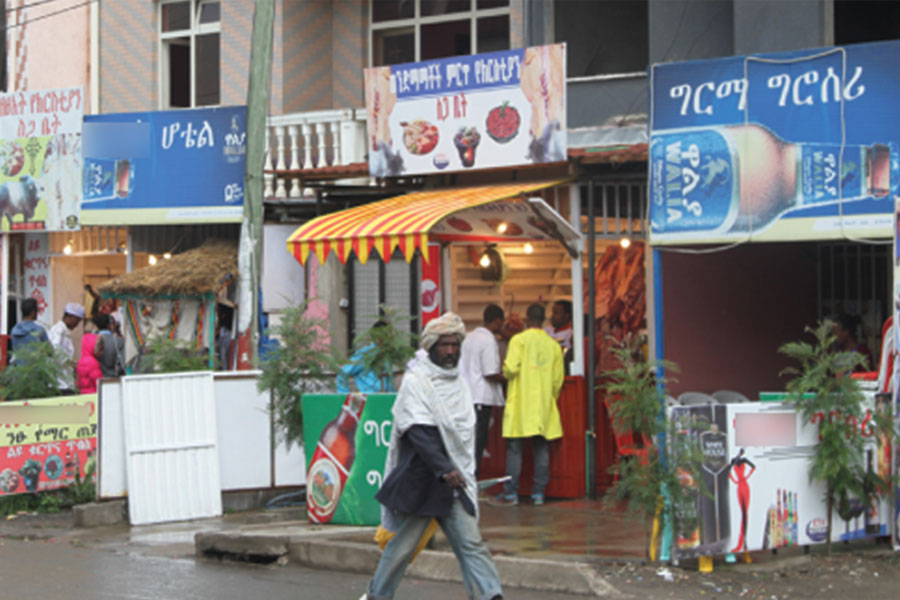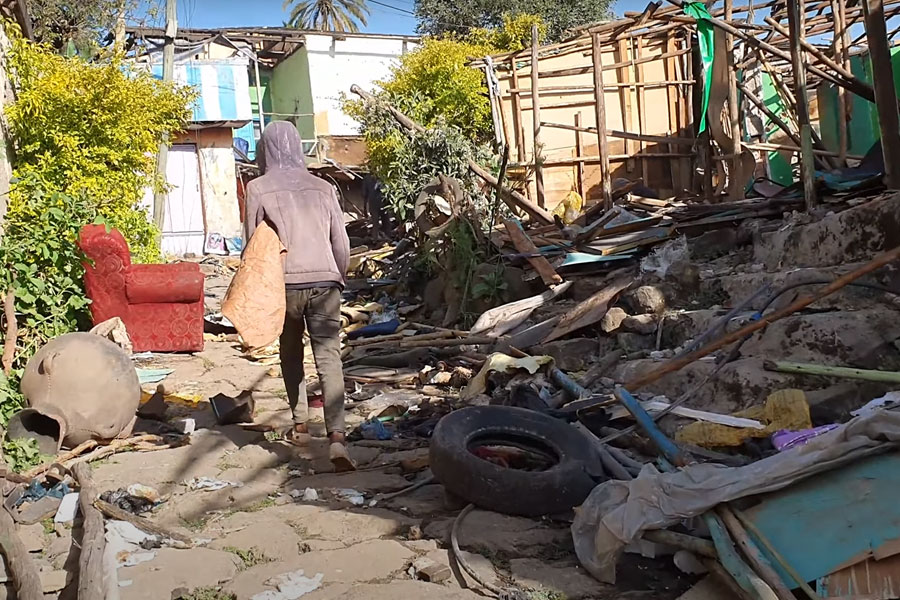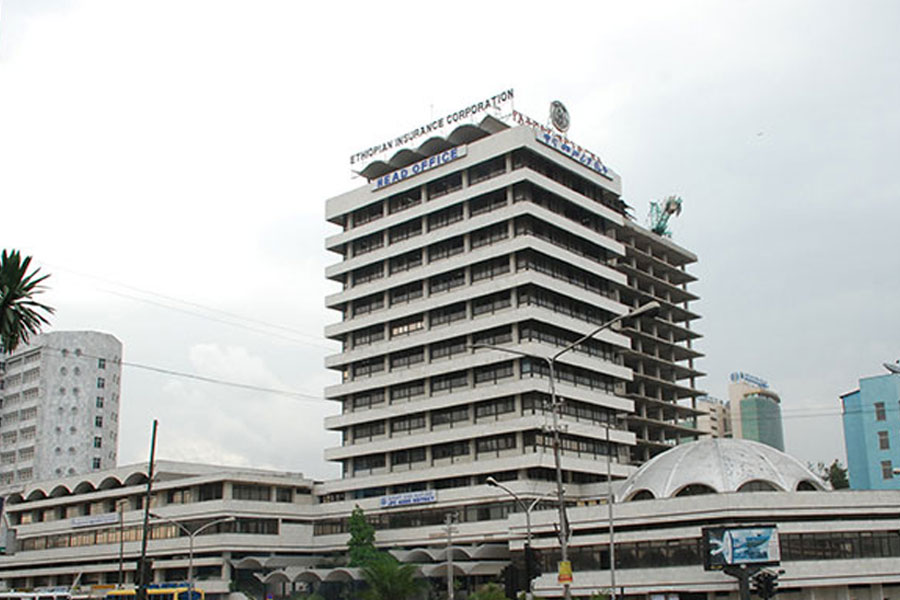
View From Arada | Apr 20,2019
Aug 21 , 2021
By Eden Sahle
A couple of weeks ago, on their morning walk, my father and his friend ran into a woman begging on a sidewalk in Bole with her infant. Seeing her and the newborn girl, they wanted to do a little more than give her a few coins. They offered her a part-time job and a family home for herself and her child.
“We will show you our house and introduce you to our families,” they told her.
They offered maternity leave before she begins her work part-time as a housekeeper with a monthly salary of 1,500 Br. She need not worry about basic things such as food, a place to live, water, electricity and clothes. They even offered to help her send her child to school. The gratitude they were expecting in return was not forthcoming.
“I am very much content and comfortable on the streets, and I will not leave for that salary,” she said, offended at their offer. “I am not interested in work.”
She said that she made what they were offering to pay every month in just a day on the streets. She even mentioned that she has two more children but much older and somewhere on their own, making a life for themselves on the streets.
My father and his friend were staggered.
“Is this the future you wish to give to your infant daughter?” they asked.
The infant she was holding is no exception to her previous two, she argued. It will survive somehow on the streets, continuing a life of tragedy the mother had known before she brought them into the world. My father and his friend left her and her infant behind in sadness and disbelief.
It is devastating to realise that some children are better off from their parents. It is an appalling daily phenomenon to see children on the streets whose future is destroyed by irresponsible parents who use their newborns for begging. Those same children grow up, robbed of opportunities and hope, and subject their offspring to the same sad reality.
The underlying cause of homelessness and vagrancy is poverty and mental illness, while begging to support a drug habit is common among the underage and the youth. Many claim to join begging due to livelihood challenges and remain there despite the countless exposure to crimes and dangers. Neither has the escalating problem that involves children been considered worthy of consistent attention by authorities.
There is no adequately organised and funded public welfare system in Ethiopia. This means that children grow up without the nurture and care they deserve, sniffing glue and engaging in crime. Many women fall into the trap of prostitution, exposing themselves to abuse and disease. The elderly, robbed of physical means, succumb to begging and a life of hopelessness.
Change should start sooner than later, with coordination between authorities to protect the children who are falling victim to the cruelty of the streets. The longer they stay on the streets, the harder it becomes to rehabilitate them back into society.
Unavoidably, the government is responsible for providing special protection and caring for children by making necessary legal and institutional arrangements. From the constitution to the international and regional human rights legislations Ethiopia ratified, the nation needs to live up to its promises. Every child has the right to survive, develop, be protected from harmful influences, abuse and exploitation, and become a member of society.
The persistent gaps in the practice in terms of fully realising the rights of children in Ethiopia continue to widen the massive socio-economic hole. There is a strong need for centralised, state organised and managed donation centres to raise support from the public. Collaborating with child rights advocates, civil society, and the public, we must work for the rights of street children to reduce the crisis. These interventions must include immediate and long-term solutions to save the generations of children forced to beg and grossly neglected and abused in daylight.
PUBLISHED ON
Aug 21,2021 [ VOL
22 , NO
1112]

View From Arada | Apr 20,2019

Sunday with Eden | Oct 20,2024

Viewpoints | Oct 23,2021

Fortune News | Mar 27,2021

Agenda | Mar 23,2024

Commentaries | Dec 19,2021

Commentaries | Nov 02,2024

Fortune News | May 08,2021

View From Arada | May 25,2019

View From Arada | Oct 26,2019

My Opinion | 131584 Views | Aug 14,2021

My Opinion | 127940 Views | Aug 21,2021

My Opinion | 125915 Views | Sep 10,2021

My Opinion | 123539 Views | Aug 07,2021

Dec 22 , 2024 . By TIZITA SHEWAFERAW
Charged with transforming colossal state-owned enterprises into modern and competitiv...

Aug 18 , 2024 . By AKSAH ITALO
Although predictable Yonas Zerihun's job in the ride-hailing service is not immune to...

Jul 28 , 2024 . By TIZITA SHEWAFERAW
Unhabitual, perhaps too many, Samuel Gebreyohannes, 38, used to occasionally enjoy a couple of beers at breakfast. However, he recently swit...

Jul 13 , 2024 . By AKSAH ITALO
Investors who rely on tractors, trucks, and field vehicles for commuting, transporting commodities, and f...

Jun 28 , 2025
Meseret Damtie, the assertive auditor general, has never been shy about naming names...

Jun 21 , 2025
A well-worn adage says, “Budget is not destiny, but it is direction.” Examining t...

Jun 14 , 2025
Yet again, the Horn of Africa is bracing for trouble. A region already frayed by wars...

Jun 7 , 2025
Few promises shine brighter in Addis Abeba than the pledge of a roof for every family...

Jun 29 , 2025
Addis Abeba's first rains have coincided with a sweeping rise in private school tuition, prompting the city's education...

Jun 29 , 2025 . By BEZAWIT HULUAGER
Central Bank Governor Mamo Mihretu claimed a bold reconfiguration of monetary policy...

Jun 29 , 2025 . By BEZAWIT HULUAGER
The federal government is betting on a sweeping overhaul of the driver licensing regi...

Jun 29 , 2025 . By NAHOM AYELE
Gadaa Bank has listed 1.2 million shares on the Ethiopian Securities Exchange (ESX),...